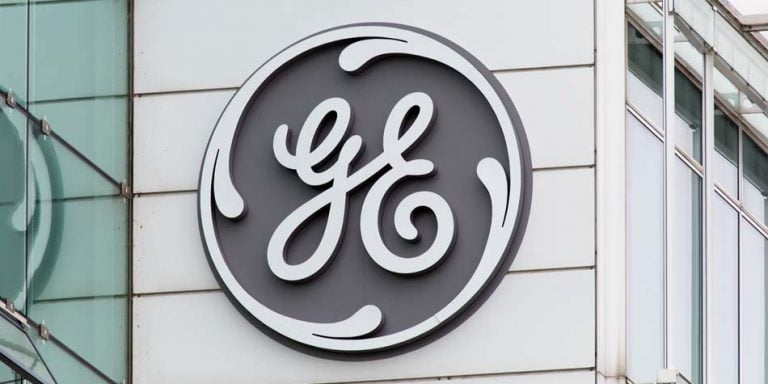Investors in General Electric Company (NYSE:GE) were surprised — and unhappy — that GE stock didn’t gain after the company’s first quarter earnings report last Friday.

After all, earnings came in well ahead of consensus, and organic revenue grew 7%. GE reaffirmed full-year targets for cash flow and earnings, meaning guidance was solid. And yet General Electric stock sold off, declining 2.3% and nearing a post-election low.
The problem, as Barron’s pointed out, is that General Electric, and GE stock, both have a credibility problem. Cash flow numbers came in well below expectations, leading to a sense that General Electric’s earnings are being managed somewhat. And with the company’s shares back near levels seen in 1998 — and still some 40% off early 2000’s highs — investors just don’t have much patience left.
There’s good reason for that sentiment. GE continues to zig when it should zag. It ramped up finance exposure ahead of the 2008 financial crisis. It entered oil and gas ahead of the bust there; it’s still waiting for approval of its merger with Baker Hughes Incorporated (NYSE:BHI). Investors simply don’t trust General Electric.
That needs to change — but it will take some time, if it happens at all.
Cash Flow, Not Earnings
The headline concern coming out of General Electric earnings was the company’s operating cash flow figure. GE burned $1.6 billion in the quarter — a full billion more than it had projected. CFO Jeffrey Bornstein said on the Q1 conference call that $400 million of the gap came from receivables, including a few large accounts in aviation and some past-due collections in the Middle East.
But it’s a sign of trust (or lack thereof) in General Electric that investor concerns weren’t assuaged by his answer. JPMorgan analyst Stephen Tusa, as quoted by Barron’s, pointed out that cash flow and earnings have diverged for some time, driven by beneficial contract adjustments.
That’s a long-term problem for General Electric stock, since much of its attractiveness is coming from shareholder returns.

GE pays a 3.2% dividend, for instance, and the company has aggressively repurchased shares. Those buybacks are driving much of the company’s EPS growth, both at the moment and going forward. But if cash flow continues to lag earnings, those repurchases will either slow down or be financed with increasing debt.
Either outcome hurts GE’s potential earnings growth and the company itself doesn’t appear strong enough to drive that growth on its own.
Net Income, Not EPS
First-quarter earnings growth looked strong, with non-GAAP EPS increasing 12%. But those stock repurchases meant the company’s outstanding share count declined 6%. In other words, over half of that seemingly impressive EPS growth came simply from having fewer shares.
In 2016, industrial operating and verticals EPS (another non-GAAP figure which excludes fluctuations from GE Capital) rose 14%; net income on the same basis grew just 4%, and adjusted operating margin in the key industrial segment actually compressed.
Expectations aside, General Electric simply isn’t showing enough profit growth. There’s a reason why GE stock and shares Honeywell International Inc. (NYSE:HON) have diverged so far in 2017 — and why HON stock has outperformed General Electric for some time now. The earnings performance simply isn’t strong enough.
And when cash flow concerns are laid on top of those relatively weak profit improvements, it’s tough to turn bullish on GE shares.
Bottom Line for GE Stock
There’s a sense that General Electric is running out of time, and investor patience. CEO Jeff Immelt clearly is in the hot seat. Indeed, our own Dana Blankenhorn called for Immelt’s removal just two weeks ago. The big moves have been made, with much of GE Capital sold off, the purchase of Alstom’s power division done and the Baker Hughes integration on the way.
So there’s a “what’s next?” problem for GE.
There’s potential cost-cutting en route, but $2 billion (after taxes) isn’t a huge number against GE’s $260 billion market cap. Immelt has publicly set a target of $2 in EPS by 2018, but only one of 18 analysts thinks General Electric can get to the number.
Investors have good reason not to trust the long-term strategy here. While GE stock has performed well out of the recession, it has underperformed against Honeywell and many other major industrials. Management has re-shaped the company but it still has exposure to problematic verticals like oil and gas. It’s not growing earnings that strongly and revenue growth has been choppy, at best.
The reaction to the Q1 report shows that General Electric needs to change the narrative toward its shares. But it’s not clear the company has the ability to do so.
As of this writing, Vince Martin did not hold a position in any of the aforementioned securities.
